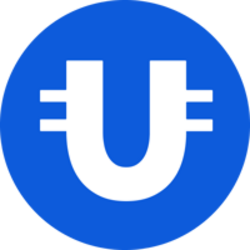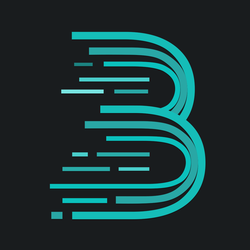Blockchain initiatives ought to take a cue from Google and Facebook and monetize consumers without explicitly requesting money from them.
Pay-to-use blockchains are done.
Of course, not for the geeky crypto community like us. While we hope to the blockchain gods that the North Koreans aren’t online right now, we’re quite content to open wallets, carve seed words on steel cards we bury in the ground, locate exchanges we haven’t been blocked from yet, wrap some assets to leverage yield, and learn OpSec.
This is okay with us. The discomfort has diminished over time with experience.
But the widespread adoption that we all desired The 99% of individuals who have no desire for such pain are what it depends on.
Three significant changes must take place if permissionless blockchains are to become the foundation of our online experiences:
- They must have freedom.
- They must move without resistance.
- They must be well-known.
Free implies that it is free for the user; frictionless implies that it is as simple to use as launching an app or playing a video game; and familiar implies that we should cease asking everyday people to modify their behavior in order to work with our technology. We must go to where they are already.
We are now three for zero. In fact, we’re so far behind schedule that we’re not even making a genuine attempt to solve these issues; instead, we’re preoccupied with making little, incremental changes to broken technology rather than dealing with the source of the problem.
Free to use
Layer-1 Blockchains have been designed, built, and funded by people who figure that their value indirectly monetizes the user.
This is a fallacy.
Google serves you ads. It monetizes you indirectly. Facebook monetizes your data, but it doesn’t charge you to use its platform. Apple’s store takes a 30% cut from developers and publishers, not from you.
In all cases, you’re paying—just not with cash.
Every month, 85 billion people access Google. If it were directly monetized, it could theoretically generate $85 million each month by charging only one-tenth of a penny to access its site.
However, it doesn’t because the number of individuals who would be willing to pay money for the Google experience is infinitesimally small in comparison to the number of people who are okay with Google showing them advertising and keeping it free.
We are accustomed to indirect monetary gain. However, the present blockchain technologies directly monetize us by charging petrol fees for each transaction.
One of the most exciting premises of Web3 is that it creates the possibility for aligned incentives between creators and consumers. Countless nonfungible token (NFT) creators have found ways to grow communities around such incentives, but layer-1 blockchain builders just keep doing the same thing over and over again.
No matter how small their fees get, thanks to incremental reductions from the likes of Solana or the myriad layer 2s out there, it’s still a fee that most people won’t pay.
Frictionless and simple
We are not very loyal to our apps. Around 77% of daily active users abandon Android apps within three days. Estimates suggest that 25% of all downloaded apps are abandoned within minutes due to poor onboarding.
Andrew Chen, a partner at Andreessen Horowitz investing in games, the metaverse, and consumer tech, shared the following graph: He suggested that “the best way to bend the retention curve is to target the first few days of usage, and in particular, the first visit.”
Compare the Bitcoin onboarding process to the onboarding of badly designed software. Even if it is horrible, it is not the same sport. The most inaccessible technology ever sold to the general population is cryptocurrency. It feels to folks who have trouble using technology like being repeatedly hit in the face on the computer screen.
Crypto hasn’t become any nicer over time. You are reading a professional publication, dear reader. That phrase makes no sense to a regular person; you’re probably a degen with a liquidity position on Uniswap and a Milady in cold storage.
The blockchain must thus alter. It must evolve into a seamless experience with background technology that works with the internet, phones, and other devices we use on a daily basis.
What they do is irrelevant to us. We just care that they function.
Familiar and enjoyable
Last but not least, and maybe my largest criticism of the cryptocurrency sector, is how carelessly we have approached forcing billions of people to act in ways they don’t actually want to.
Crypto has not been successful in developing decentralized Facebook substitutes. It hasn’t been very effective in producing original game experiences. With aligned-incentive Web3 models, it has not been successful in displacing conventional supplier-user Web2 models.
It has excelled at using monkey images, con artists, Twitter arguments, and speculative trading.
This is not to imply that cryptography is useless—it is really useful. If we cease repeating the banking system and inequalities that made crypto essential in the first place, the economic models that crypto allows will someday be recognized as a defining shift in power hierarchies and human autonomy.
However, only if we make it as simple to use as launching an app or finishing a gaming level, as that’s what people in real life really do.
This is all silly, impossible, and just wishful thinking, right?
Nothing here is insurmountable.
As a few individuals have amassed enormous wealth by advocating pay-to-use fundamental blockchains that at most have narrow appeal, we have just been led to believe that this is the case.
Because it is safe, decentralized, and takes a while to move, Ethereum is a fantastic invention that will continue to act as the cornerstone of decentralized finance. It won’t, however, change games because players won’t pay for petrol. Period.
However, Solana won’t work for smart cities or the Internet of Things. It is wonderful for NFTs and may even work for stablecoins.
It’s time for the blockchain sector to admit that the following fundamental realities prevent us from becoming the cornerstone of consumer technology:
- People don’t want to pay for what should be free.
- They don’t want to do difficult things that should be easy.
- They don’t want to change their behavior to fit our vision of the world.
We can silence the critics and transform the world faster if we develop protocols and applications that acknowledge these realities.
#Blockchain #Cryptocurrencies






























































































































